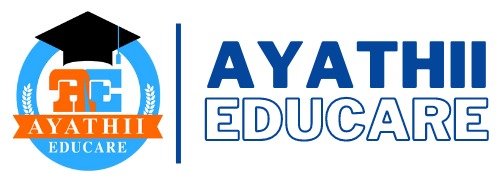CA Intermediate Syllabus PDF 2024
Home CA Intermediate Syllabus PDF 2024

+91 90036 59987
ayathiieducareofficial@gmail.com

Home CA Intermediate Syllabus PDF 2024

1. Principles and Practice of Accounting
2. Business Laws
3. Quantitative Aptitude
4. Business Economics
Also Read: CA Intermediate New Batches Starts For 2024 Students
| Particulars | Details |
| Examination Name | CA Foundation exam |
| Exam Conducted By | The Institute Of Chartered Accountants of India (ICAI) |
| Exam Mode | Offline |
| Exam Frequency | Twice a year (June / December) |
| Exam Level | National Level |
| Exam Duration | 3 hours for Paper 1 and Paper 2 2 hours for Paper 3 and Paper 4 |
| Number of paper | 4 |
| Exam Difficulty | Easy to moderate |
| Maximum marks for each paper | 100 |
| Marking Scheme | There will be no negative marking in Papers 1 and 2 as questions will be subjective.However, ¼ mark will be deducted for every wrong answer in Paper 3 and Paper 4 as questions will be objective. |
| Paper Names | Principles and Practice of Accounting Business Laws Quantitative Aptitude Business Economics |
| Total marks for all 4 papers | 400 |
| Medium of Exam | English/Hindi |
The CA Foundation syllabus is carefully designed and divided into four different subjects. To offer a clearer perspective on the structure and content, here’s a table describing the CA Foundation study material 2024. This table defines important topics for each subject so that students have a complete roadmap for their studies.
The CA Foundation Accounting Paper 2024 delves into core accounting concepts, equipping candidates with the skills to craft financial statements and address foundational accounting challenges proficiently.
| No. of Modules & Chapters | Topic & Sub-topic |
| MODULE 1 : | |
| Chapter 1 | Theoretical Framework Unit 1: Meaning and Scope of Accounting Unit 2: Accounting Concepts, Principles and Conventions Unit 3: Capital and Revenue Expenditures and Receipts Unit 4: Contingent Assets and Contingent Liabilities Unit 5: Accounting Policies Unit 6: Accounting as a Measurement Discipline – Valuation Principles, Accounting Estimates Unit 7: Accounting Standards |
| Chapter 2 | Accounting Process Unit 1: Basic Accounting Procedures – Journal entries Unit 2: Ledgers Unit 3: Trial Balance Unit 4: Subsidiary Books Unit 5: Cash Book Unit 6: Rectification of Errors |
| Chapter 3 | Bank Reconciliation Statement |
| Chapter 4 | Inventories |
| Chapter 5 | Depreciation and Amortisation |
| Chapter 6 | Bills of Exchange and Promissory Notes |
| Chapter 7 | Preparation of Final Accounts of Sole Proprietors Unit 1: Final Accounts of Non-Manufacturing Entities Unit 2: Final Accounts of Manufacturing Entities |
| MODULE 2 : | |
| Chapter 8 | Financial Statements of Not-for-Profit Organisations |
| Chapter 9 | Accounts from Incomplete Records |
| Chapter 10 | Partnership and LLP Accounts Unit 1: Introduction to Partnership Accounts Unit 2: Treatment of Goodwill in Partnership Accounts Unit 3: Admission of a New Partner Unit 4: Retirement of a Partner Unit 5: Death of a Partner Unit 6: Dissolution of Partnership Firms and LLPs |
| Chapter 11 | Company Accounts Unit 1: Introduction to Company Accounts Unit 2: Issue, Forfeiture and Re-Issue of Shares Unit 3: Issue of Debentures Unit 4: Accounting for Bonus Issue and Right Issue Unit 5: Redemption of Preference Shares Unit 6: Redemption of Debentures |
CA Foundation Paper 2 on Business Laws is composed of 7 chapters, offering a comprehensive exploration of essential legal frameworks and effective business communication strategies.
| Total No of Chapters | Topic & Sub-topic |
| Chapter 1 | Indian Regulatory Framework |
| Chapter 2 | The Indian Contract Act, 1872 Unit 1: Nature of Contracts Unit 2: Consideration Unit 3: Other Essential Elements of a Contract Unit 4: Performance of Contract Unit 5: Breach of Contract and its Remedies Unit 6: Contingent and Quasi Contracts Unit 7: Contract of Indemnity and Guarantee Unit 8: Bailment and Pledge Unit 9: Agency |
| Chapter 3 | The Sale of Goods Act, 1930 Unit 1: Formation of the Contract of Sale Unit 2: Conditions & Warranties Unit 3: Transfer of Ownership and Delivery of Goods Unit 4: Unpaid Seller |
| Chapter 4 | The Indian Partnership Act, 1932 Unit 1: General Nature of Partnership Unit 2: Relations of Partners Unit 3: Registration and Dissolution of a Firm |
| Chapter 5 | The Limited Liability Partnership Act, 2008 |
| Chapter 6 | The Companies Act, 2013 |
| Chapter 7 | The Negotiable Instruments Act, 1881 |
Additionally, CA Foundation Paper 3 on Business Mathematics paper , Logical Reasoning, and Statistics is organized into three distinct parts, containing a total of 18 chapters. Part A contains 8 chapters, Part B is divided into 4 chapters, and Part C delves into 6 chapters, collectively offering a complete coverage of the subject matter.
| No. of Chapters in Part-A | Topic & Sub-topic |
| Chapter 1 | Ratio and Proportion, Indices, Logarithms |
| Chapter 2 | Equations |
| Chapter 3 | Linear Inequalities |
| Chapter 4 | Mathematics of Finance |
| Chapter 5 | Basic Concepts of Permutations and Combinations |
| Chapter 6 | Sequence and Series – Arithmetic and Geometric Progressions |
| Chapter 7 | Sets, Relations and Functions, Basics of Limits and Continuity functions |
| Chapter 8 | Basic Applications of Differential and Integral Calculus in Business and Economics (A) Differential Calculus (B) Integral Calculus |
| No. Of Chapters in Part-B | Topic |
| Chapter 9 | Number Series, Coding and Decoding and Odd Man Out |
| Chapter 10 | Direction Tests |
| Chapter 11 | Seating Arrangements |
| Chapter 12 | Blood Relations |
| No. Of Chapters in Part-c | Topic & Sub-topic |
| Chapter 13 | Representation of Data Unit I: Statistical Representation of Data Unit II: Sampling |
| Chapter 14 | Measures of Central Tendency and Dispersion Unit I: Measures of Central Tendency Unit II: Dispersion |
| Chapter 15 | Probability |
| Chapter 16 | Theoretical Distributions |
| Chapter 17 | Correlation and Regression |
| Chapter 18 | Index Numbers |
At last, The CA Foundation 2024 Paper 4, focused on Business Economics, contains a total of 10 informative chapters, offering a deep understanding of economic principles and commercial understanding.
| Total No. Of Chapters | Topic & Sub-topic |
| Chapter 1 | Nature & Scope of Business Economics Unit 1: Introduction Unit 2: Basic Problems of an Economy & Role of Price Mechanism |
| Chapter 2 | Theory of Demand and Supply Unit 1: Law of Demand and Elasticity of Demand Unit 2: Theory of Consumer Behaviour Unit 3: Supply |
| Chapter 3 | Theory of Production and Cost Unit 1: Theory of Production Unit 2: Theory of Cost |
| Chapter 4 | Price Determination in Different Markets Unit 1: Meaning and Types of Markets Unit 2: Determination of Prices Unit 3: Price Output Determination under Different Market Forms |
| Chapter 5 | Business Cycles |
| Chapter 6 | Determination of National Income Unit 1: National Income Accounting Unit 2: The Keynesian Theory of Determination of National Income |
| Chapter 7 | Public Finance Unit 1: Fiscal Functions: An Overview, Centre and State Finance Unit 2: Market Failure/ Government intervention to correct Market Failure Unit 3: The Process of Budget Making: Sources of Revenue, Expenditure Management and Management of Public Debt Unit 4: Fiscal Policy |
| Chapter 8 | Money Market Unit 1: The Concept of Money Demand: Important Theories Unit 2: The Concept of Money Supply Unit 3: Monetary Policy |
| Chapter 9 | International Trade Unit 1: Theories of International Trade Unit 2: The Instruments of Trade Policy Unit 3: Trade Negotiations Unit 4: Exchange Rate and Its Economic Effects Unit 5: International Capital Movements |
| Chapter 10 | Indian Economy |
| S. No | CA Foundation Subjects | Marks | Type of Questions |
| Paper 1 | Accounting | 100 Marks | Subjective |
| Paper 2 | Business Laws | 100 Marks | Subjective |
| Paper 3 | Quantitative Aptitude: A: Business Mathematics B: Logical Reasoning C: Statistics | 100 Marks A: 40 Marks B: 20 Marks C: 40 Marks | Objective |
| Paper 4 | Business Economics | 100 Marks | Objective |
Dealing with the CA Foundation New Syllabus 2024 – ICAI demands dedication, strategic planning, and relentless perseverance. Whereas, By embracing early adaptation, implementing effective study techniques, and seeking expert guidance, aspirants can start on a promising journey towards a rewarding career in chartered accountancy.
CA Foundation syllabus includes mandatory subjects such as Accounting, Business Laws, Quantitative aptitude, and Business Economics.
Adopting effective study techniques, leveraging reliable resources, and also seeking guidance from mentors can facilitate thorough preparation.
The exam duration for Paper 1 and Paper 2 will be 3 hours each, while Paper 3 and Paper 4 will have a duration of 2 hours each.
The CA Exam mode will be Offline.
In Papers 1 and 2, which feature subjective questions, there will be no negative marking, while in Paper 3 and Paper 4, which contain objective questions, ¼ mark will be deducted for each incorrect answer.

Ayathii Educare Pvt. Ltd. is a company established in the year of 2012 with a motive to provide quality education to students
Copyrights 2024 @ Ayathii Educare. All Rights Reserved